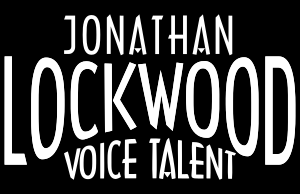Retail Commercial Voiceovers
As one whose greatest share of income is from furniture and auto retailers, I can positively state that most are looking for ‘announcery’—even when they say they’re not. Most are looking for a high level of energy that couldn’t be considered completely un-announcery. They’ve been through a phase or two in which they tired of hearing their ads delivered with hype. They thought, 'Since everyone else is screaming, why don’t I distinguish myself from them? Maybe they’ll appreciate not being yelled at.’
It’s a worthy thought. Whether it's a successful strategy or not is a question that usually never gets answered. Because someone says something to the boss. A spouse or neighbor will say the ads aren’t very exciting, and although ‘exciting' was no longer part of the fundamental plan, there’s still a sense that this is a problem. If sales ever dip, a floor rep will say with a squint, 'Don’t you think our ads need a little more oomph?’
Dunzo.
I’ve not just seen this evolution happen a few times, but a few dozen. It isn't that I think voiceovers shouldn't ever be powerful and high-energy. Not at all. It's just an awareness over many years that, in some business categories, the moves from a high-energy approach to a friendly-and-genuine one--and back to high-energy again are like a train moving through town.
Not many years ago I won an audition for a national retailer that expressed a clear desire to 'stand apart.' They wanted their ads friendly, thoughtful and real. It took 2 weeks. My contact said, ‘The client LOVES your VOs. They’re exactly what we want. And they’re asking if we can keep them friendly, thoughtful and real, but also inject a little urgency into them.’ Knowing where this was going my sigh was internal, and I did indeed ‘inject’ a little urgency to the director’s satisfaction. The next week they wanted even more urgency, and the week after that? The voiceovers were like those from every other high-energy retail ad in the world.
I get it. David Ogilvy said, '50% of all advertising is useless. We just don't know which 50%.’ Years ago I remember Dallas Dort, a mentor, talking about market research performed for advertisers to determine what was or wasn’t working. He said 'My experience has been that for most clients the cost of ‘knowing’ was too high; they’d rather just ‘believe.’ So in a world where you just don’t know, but are searching to believe, it seems 'powerful and urgent' beats 'conversational and genuine.’
To be clear, I have zero problem with this. I’m beyond pretending I know better. Now that I focus on voiceovers my job is to give the client and/or director exactly what they want. And there’s some freedom in not bringing my own ideology to a project that someone else is managing.
But my point is—and let’s be clear about it—LOTS of people are looking for ‘announcery.’
Like You're Talking to a Friend
When I get this very common direction, I have to take it with a grain of salt. I think you'd find I do really voice such a script—assuming it’s written accordingly—like I’m talking to a friend. But I take that fairly literally. And often after delivering such a take, the director will say something like, ‘Wow. That was just like you'd talk to a friend. (pause) Let’s try it again maybe with a little more confidence and a bit of a smile.’

Last year I took a call from a client who’d chosen my audition. He was complimentary about how genuine and un-announcery my read was. Maybe you can relate: frequently when I take these calls I don’t have a clue what audition it actually was. They always seem to think I automatically know. So in this case I start thinking I know which audition it was since there really was a recent one where I abandoned every vestige of announcer-boy. Then I found out which it was. Huh? It was actually quite announcery, since it was written in a common infomercial style. Maybe 7 out of 10 on the announcery scale!
Look, I know plenty of people actually do want zero ‘announcer,’ and I get quite a bit of that sort of work too. But I also know a pretty high percentage really just want you to back off the announcer anywhere from 30 to 80%.
Conversational Voiceover - Conversational Script
Let me lead this segment with some positive: in the past few years I’ve received several requests for un-announcery voiceovers that were accompanied by fine, un-announcery scripts. That said, it normally isn’t the case. Recently I came upon an article written by Bob Bergen in which he appeals to producers, 'YOU try saying ‘prices and participation may vary’ in a conversational way! Couldn’t the copy just say something like, ‘Here’s the thing, folks. Ya may not find the same deal at every store, so just get over it!’
Like I said, I know most people don’t really want it 100% announcer-free. So I don’t get bitchy when I receive an announcery script; I simply ease back on the announcer, ‘real’ it up a bit—and it’s usually just what they’re looking for. But the fact is when their script reads, “It’s the GREATEST sale in our HISTORY!” no matter what they say…they’re looking for some level of ‘announcery.’
My Confessions
When I've come across old videotaped TV programs that include commercials, it’s obvious to me that voiceovers have indeed become more genuine, subtle and conversational than they were 30 years ago. Even the high-energy, retail VOs of today are much less pukey and more natural than they used to be. And I consider that a good thing.
But although I get lots of work doing sincere, authentic VOs, here is my first confession: I don’t see an end to full-on announcer work in sight. This very week I’ve received auditions in which the clients called for ‘Majestic,' ‘Authoritative,' ‘Energetic,' ‘Entertaining,' 'Hard Hitting,’ and ‘Impactful.’ This doesn't mean guttural, douchy 70s DJ. But it certainly doesn't mean 'like you're talking to a friend' either.
Why is this? I’ll just say many, many clients still place value on an approach that's elevated from the friendly real guy or gal; that sort of showcases their project—instead of simply communicates it. And while it’s great to win jobs for major, Fortune 500 companies, the retailers who still look for voiceovers on the announcery spectrum have pretty big advertising budgets and seem more interested in sticking with the same talent than the others do. So for me this has been the most consistently lucrative work I’ve received over the course of a 25 year career.
If you’re new to voiceovers you’re probably hearing a lot about this subject—and for very good reason. If you can’t lose the 'announcer' you’re going to miss out on lots of work. And it’s no doubt much harder for most to learn how to lose it than learning to apply it. I’m convinced versatility has been an asset that’s helped me build a successful voiceover business. Maybe you’ll do better by focusing on just a style or two. Great. But as a voice talent who is often found 'announcery,' here is my next confession: I’m pretty damn grateful for the work!







